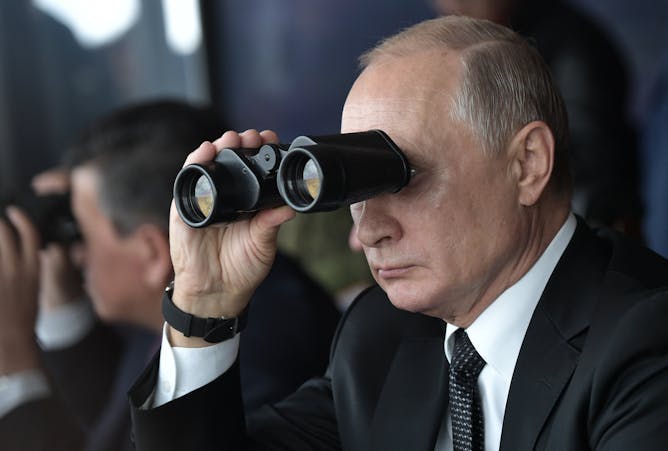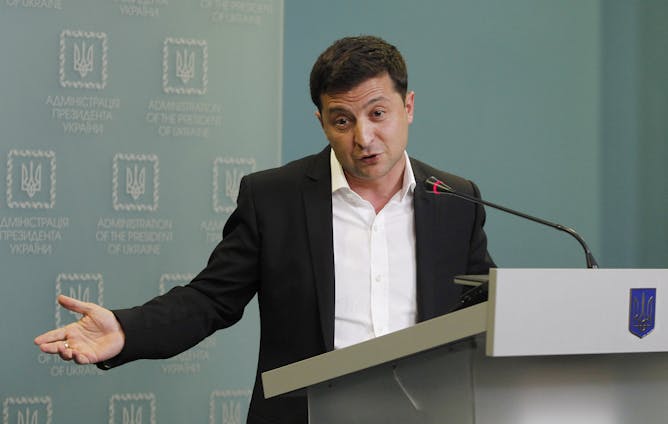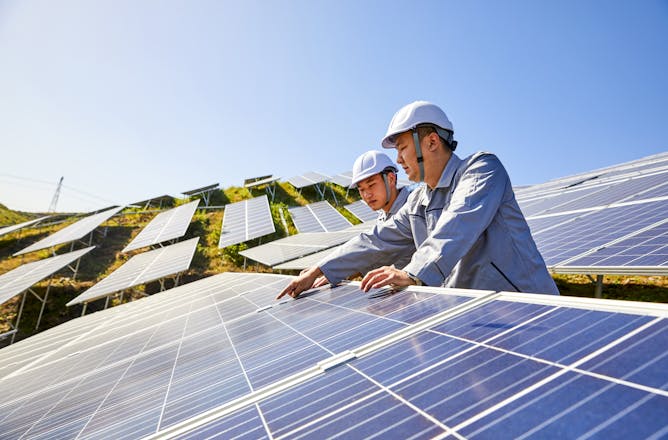|
|
|
Editor's note
|
|
Traditionally, as the middle class accumulates wealth and property, it develops a vested interest in stability and the rule of law, promoting the development of a set of democratic checks and balances on the government. Russia’s middle class was once regarded as a major source of opposition to the Putin regime, as was seen during the wave of protests between 2011 and 2013. But divisions have weakened the solidarity of the Russian middle class and questioned its role as a catalyst for democratic change. That crucial dividing line is between those who depend on the state for their livelihood and those who work in the non-state sectors of the economy.
The end of the post-Soviet era created a middle class that grew affluent on the back of oil and gas deposits. But another layer of middle class grew out of the huge army of public sector workers and state officials. Not just people working directly for the state but also in state corporations and in private companies that rely on their connections with the state. This has made Russia’s middle class much less likely to rock the boat. Dependent on the state for income, they are prioritising stability and economic security over liberal, democratic values. Cameron Ross reports on how the current middle classes seem quietly content with the status quo of the Putin regime.
In neighbouring Ukraine, as the civil war drags on into its sixth year, President Volodymyr Zelensky has announced an initiative designed to break the deadlock and establish a lasting peace in eastern Ukraine. Can it work? And new research demonstrates that the region at the heart of China’s Belt and Road Initiative has huge potential for generating solar power that could decouple the ensuing economic growth from devastating levels of carbon emissions.
|
Jane Wright
Commissioning Editor, Scotland
|

|
|
Top stories
|

Is politics a one-horse race for Russia’s middle class?
EPA
Cameron Ross, University of Dundee
The middle classes are normally regarded as a bastion of democracy, but in Russia where many depend on the state for income, stability and economic security are prized over liberal values.
|

Volodymyr Zelensky: ready to make concessions.
Stepan Franko/EPA
Liana Semchuk, University of Oxford
What is the 'Steinmeier formula' for eastern Ukraine and why is it so controversial?
|

Jenson/Shutterstock
Kathryn G Logan, University of Aberdeen; Shi Chen, Tsinghua University; Xi Lu, Tsinghua University
Tapping just 3.7% of solar potential in countries in China's intercontinental infrastructure programme could power the entire region.
|
Science + Technology
|
-
Andrew George, Brunel University London
Research is more profitable and productive than ever before, but it risks losing its sense of values and ethics.
-
Andreea Font, Liverpool John Moores University
Maps of the long filaments of gas that hold the universe together may one day help us trace and unveil 'dark matter'.
-
Roger Clarke, University of Bradford
Light bulbs can turn electricity into light (and a bit of heat) – an expert explains how they do it.
-
Harry Collins, Cardiff University
Some people claim it's already been passed. But Alan Turing's test of whether artificial intelligence can act like a human remains an important benchmark for our species.
|
|
Environment + Energy
|
-
Louise Gentle, Nottingham Trent University
Major new 'State of Nature' report shows wildlife numbers still falling but conservation measures can work.
-
Alex Rogers, University of Oxford
Polar regions may be becoming more profitable, but these "benefits" come with far more severe costs.
-
Christina Hicks, Lancaster University; Andrew Thorne-Lyman, Johns Hopkins University; Philippa Cohen, James Cook University
Nutritious fish are being diverted away from countries that could benefit from them the most.
|
|
Health + Medicine
|
-
Elizabeth Coombes, University of South Wales
Music for pleasure, self-expression and emotional regulation.
-
Emma Maynard, University of Portsmouth
The idea that we can sit down calmly and rationally and explain to our children how they can take drugs safely overlooks a bundle of emotional issues.
-
Mario Falchi, King's College London
Individual gut microbe species are less important for our health than teams of microbes working together.
|
|
Business + Economy
|
-
Miroslav Palanský, Charles University
Governments around the world lose about US$125 billion in revenues every year because of profit shifting to tax havens.
-
Joanne Atkinson, University of Portsmouth
The closure of high street pawnbrokers like Albermarle and Bond might leave many without financial help.
|
|
Politics + Society
|
-
Elizabeth Shepherd, UCL
Children’s voices are being omitted from their care records, with devastating effect.
-
Jane Hamlett, Royal Holloway
A dive into the archives shows that pets developed a special place in Victorians' hearts.
|
|
| |
| |
| |
| |

|
| |
| |
| |
Featured events
|

|
Bonar Hall University of Dundee, Dundee, Dundee City, DD1 4HN, United Kingdom of Great Britain and Northern Ireland — The Conversation
|

|
Bonar Hall University of Dundee, Dundee, Dundee City, DD1 4HN, United Kingdom of Great Britain and Northern Ireland — The Conversation
|

|
51 Gordon Square, London, London, City of, WC1H 0PN, United Kingdom of Great Britain and Northern Ireland — UCL
|

|
East Road, Cambridge, Cambridgeshire, CB11PT, United Kingdom of Great Britain and Northern Ireland — Anglia Ruskin University
|
|
|
|
| |
| |
| |
| |
| |
|
|
|
|
|
|
|